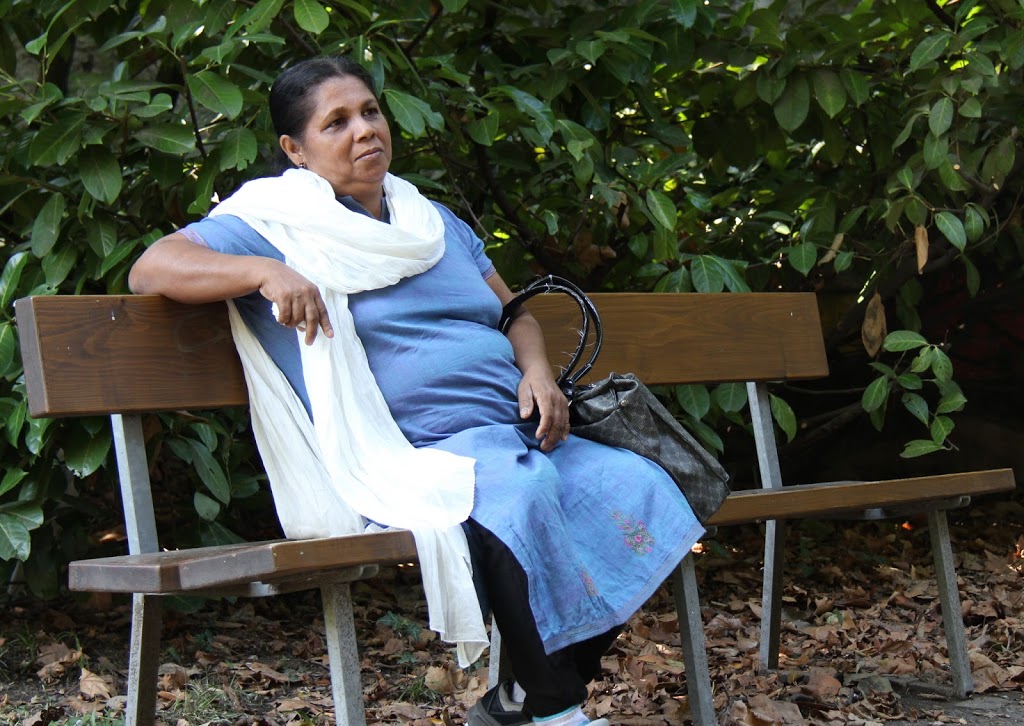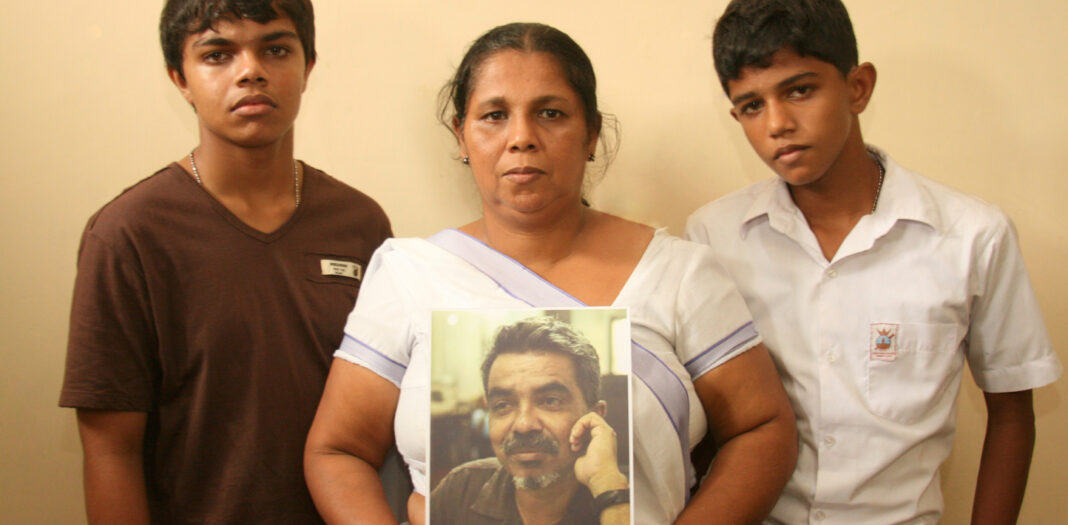By Yasasmin Kaviratne.
Imagine being detained or abducted by security forces. Now imagine they detain you, yet nobody has any idea where you are, or even if you are dead or alive. The authorities refuse to acknowledge your detention and keep your whereabouts a secret. You have no protection. Your loved ones do not know if you are being tortured, if you have access to food and medicine, or if they have already killed you. Years pass, and still, your fate and whereabouts remain known. Eventually, you become just another statistic in the file of people who have been forcibly disappeared.
This is exactly what happened to Sri Lankan journalist Prageeth Eknaligoda, who was forcibly disappeared 13 years ago, on 24 January 2010 — just three days before a Presidential election in Sri Lanka. Years have passed, and while police investigations have revealed at least some of those who carried out orders from higher-ups, justice remains elusive. Prageeth’s wife, Sandya Eknaligoda, continues to passionately advocate on behalf of the case, but to date, no perpetrators have been held accountable.
In February 2010, soon after Prageeth’s enforced disappearance, Sandya filed a writ application before the court of appeal to demand information about her husband and seek his release. Yet it was only when Prageeth’s case was handed over to the Gang and Robberies Unit of the Criminal Investigations Department in 2015 that 12 suspects from the armed forces were identified as suspects.
A police investigation in 2015 revealed that Prageeth was last seen alive in a military camp in Giritale, shortly after being abducted by a military intelligence unit. Soldiers, former soldiers and military intelligence officers were all questioned over his enforced disappearance, yet nobody was held to account. The Sri Lankan Army has also repeatedly failed to support any investigations and has instead cited national security concerns as a reason to withhold information about Prageeth’s fate.
Prageeth was targeted not only in relation to his work as a journalist and cartoonist, but also because he publicly criticized politicians in the country, who he deemed to be corrupt and fraudulent.
The Sri Lanka authorities have a long history of using enforced disappearances as a tool to silence dissent and suppress resistance. On the list of outstanding cases before the UN Working Group on Enforced or Involuntary Disappearances, Sri Lanka ranks second-highest in the world. Amnesty International estimates there have been between 60,000 and 100,000 enforced disappearances in the country since the 1980s, including of people who took part in youth uprisings in the south and in the civil war in the north. It is a deeply repressive practice that has frequently taken place, regardless of the regime in power.

Sandya remembers every detail of the last day she saw Prageeth, including the clothes he was wearing. He had borrowed a white shirt from their eldest son, and had promised to come home early. Yet Sandya and her two sons have spent 13 years waiting for Prageeth to come home, with no justice in sight. In the intervening years, Sandya has been intimidated, threatened and harassed —inside court rooms, in person, and on social media — simply for demanding truth and justice. As she persisted, her children had to watch her face these struggles, adding to the trauma of their father being taken from them.
The lack of truth, justice and reparations in Prageeth’s case, alongside thousands of others, mirrors the devastating history of enforced disappearance in the country. Sri Lanka ratified the International Convention for the Protection of All Persons from Enforced Disappearance in 2016 before passing domestic legislation that criminalized the practice in 2018.
The families of those who have been subjected to enforced disappearance, meanwhile, are left in limbo, with a sense of complete loss. It is impossible for them to know the fate or whereabouts of their loved ones, or to resolve issues such as financial inheritance or care of children.
In 2016, President Maithripala Sirisena’s government began issuing certificates of absence to relatives of over 65,000 missing persons, allowing them to temporarily manage the property and assets of missing people and apply for government welfare schemes without having to accept a death certificate, yet much more needs to be done.
Other state-led efforts have proved fruitless. Attempts to establish truth-finding commissions, which could help determine the fate and whereabouts of forcibly disappeared people, have gone nowhere. The Office for Missing Persons (OMP), established in 2015 with a mandate to investigate enforced disappearances in Sri Lanka, has hit multiple roadblocks since its inception. Although the OMP released a list of nearly 10,000 cases of enforced disappearances, it has failed not only to gain the trust of victims’ families in the north, but also to carry out effective investigations into these cases.
Enforced disappearances violate numerous human rights, including the rights to life, freedom from torture, liberty, and a fair trial. Yet without political will, there can be no pathway to ending this abhorrent practice.
Sandya once said that her youngest son still is waiting for his father to return home so he can tell him he loves him. The Sri Lankan authorities must allow Prageeth to reunite with his loved ones, or at least deliver truth and justice, so that Sandya and her family can finally have closure.
Amnesty International
